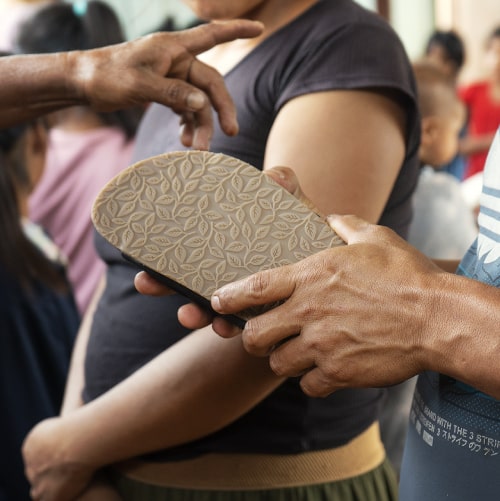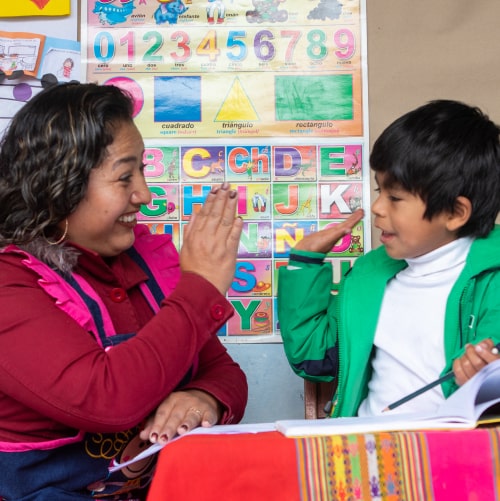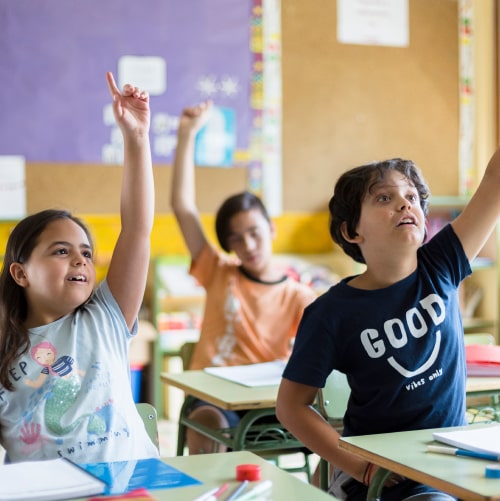Social entrepreneurship refers to the creation and development of business projects that seek to contribute to the integral well-being of a vulnerable community in the country, incorporating them into their business model. There are several outstanding examples of social entrepreneurship in Peru that illustrate these fundamental characteristics. These ventures focus on solving social needs, such as a lack of access to quality health and education services, poverty and unemployment, through innovative solutions.
A key aspect of social entrepreneurship is its focus on social impact. Social entrepreneurs seek to generate positive and sustainable changes in society, and not only economic benefits.
Characteristics of a social enterprise

As we already mentioned, an important characteristic of social entrepreneurship is innovation. Social entrepreneurs seek to find creative solutions to social and environmental problems, using technologies, business models or approaches that are different.
In addition, social entrepreneurship is characterized by its focus on sustainability. These ventures seek to create business models that are economically viable in the long term, in order to guarantee the continuity of their social impact.
Seven Peruvian social enterprises that inspire.
Peruvian Association of Blood Donors

The Peruvian Association of Blood Donors is a non-profit organization that aims to foster the culture of voluntary blood donation in Peru. Its mission is to ensure the supply of safe and sufficient blood to meet the needs of patients throughout the country. Its work directly contributes to saving lives and improving the quality of medical care in emergency situations, surgeries, cancer treatments and other health conditions.
The association works closely with blood services and hospitals to promote voluntary donations, raise awareness of the importance of blood donation and ensure high standards of quality and safety in blood collection and distribution. Moreover, it provides information and education about blood donation, emphasizing the importance of regular donations and the diversity of blood groups needed.
Juntas Perú

Juntas is a social enterprise that seeks to prevent problems such as teenage pregnancy, violence and misinformation regarding sexual health among adolescents in Peru and Latin America through Comprehensive Sex Education (CSE).
It provides personalized educational programs for employees of private companies, their families and/or their zones of influence, in order to promote their well-being. It also provides pedagogical resources and tools that foster CSE skills and teachings to create safe environments both inside and outside the classroom.
Juntas develops tools for teaching Comprehensive Sexuality Education (CSE) focused on each social context, with the aim of strengthening ties between caregivers and children and promoting healthy relationships.
Killa Vive Verde

Killa Vive Verde is a social enterprise that specializes in the creation and production of fully reusable ecological products. To this end, it has incorporated into its
production model the women of the Yanesha and Shipibo-Konibo communities, who employ ancestral dyeing and printing techniques using local plants such as matico, mango, eucalyptus and turmeric, among others.
This initiative not only has an environmentally sustainable approach, but also generates a positive social impact by involving these women in the process of making the products.
Pachamama

Pachamama is an organization committed to the protection and restoration of the environment in Latin America. This social impact enterprise is dedicated to promoting the sustainable use of Peru’s forests, collaborating closely with local communities and establishing high-impact value chains that connect to global markets.
Peru’s dry forests have suffered the negative effects of overexploitation, which has caused the deforestation and degradation of these ecosystems. Pachamama works in alliance with the farming communities of Ayabaca to promote the extraction of resources in a sustainable manner, generating employment and significant income and, at the same time, contributing to the conservation of the forests.
Pachamanca works in alliance with four peasant communities of Ayabaca, which manage more than 70 thousand hectares, and has succeeded in rendering visible the value of their forests through the export of palo santo (aromatic sacred wood from the tree Bursera Graveolens), thus reducing incentives for deforestation.
Inkao Perú

Inkao Peru is a social enterprise led by women and whose value proposition is to offer chocolates made of fine cocoa with a national aroma, aside from developing vegan products, that is, products that are free of dairy and added sugars, thus covering an unsatisfied demand. Inkao Perú works in collaboration with farmers of the VRAEM Valley (the valley of the rivers Apurimac, Ene and Mantaro) with the aim of promoting the production of cacao as an alternative to the illicit cultivation of coca leaf, thus demonstrating its social and environmental commitment.
Its vision is to become a Peruvian enterprise recognized worldwide for its innovation in cacao derivatives and chocolate. Aside from its environmental responsibility, the company promotes reforestation and the organic production of cacao.
Away Pallay

Away Pallay is a social enterprise dedicated to sustainable fashion that offers a wide range of apparel, home décor items and artistic interventions. All these creations are unique pieces made by hand with supplies that come from nature and through an
innocuous process carried out by skilled weavers belonging to two high Andean communities in Cusco: Acchahuata and Chalwaccocha.
The company prides itself on preserving the ancestral technique of the backstrap loom, which is an integral part of its production process. Pallay not only seeks to disseminate and maintain these textile techniques as part of the cultural identity, but also acts as a bridge for their revalorization in society.
Caxacori Studio

Caxacori Studio came about as a sustainable alternative in response to current fashion, which is characterized by the cycle of buying, using and discarding, thus generating a large consumption of resources, pollution and exploitation.
At Caxacori Studio, they focus on producing and marketing sustainable materials for the fashion industry. One of its products is the sole for footwear made of wild rubber, which is collected by native Awajún communities of the Amazon jungle of Peru.
They have also developed vegan bio-leather (made from organic waste fibers), which has a higher biodegradability index than synthetic leather. These products not only preserve the ecosystem, but also empower the local communities.
With a vision of responsible production, the enterprise seeks to have a positive impact on the environment and on the economy of the communities and their families.
The Wiese Foundation and its commitment to social entrepreneurs in Peru
Social enterprises play a fundamental role in building a better world by addressing social issues, protecting the environment and generating a positive impact on the most vulnerable communities. The Wiese Foundation recognizes and backs these enterprises, providing not only economic financing, but also business and financial advice, as well as the development and strengthening of skills necessary for the leaders of these social enterprises and their social impact to continue to grow.
In this sense, the Entrepreneur Fund promotes social enterprises so that they may demonstrate the ability to generate a sustainable and scalable social impact, as a result of their commercial success and economic growth.
Now, the Fund is in its second stage of pre-acceleration, which goes from April to August of 2023, where eight social enterprises have been chosen to go through a rigorous due diligence process.
During this stage, the enterprises have the opportunity to work together with specialists from the Entrepreneur Fund to analyze different areas of their business, validate their ability to receive investment from third parties and develop the necessary instruments to present their enterprise to potential investors.
Moreover, during this process, the selected companies will receive training on entrepreneurship and will have access to testimonials from successful social enterprises. All of this is designed to prepare them to present their projects to the program’s investment committee.
If you want to know more about the program and the social enterprises selected for the pre-acceleration stage, visit our website here.









